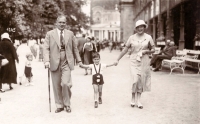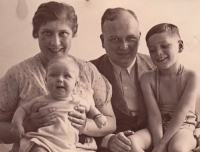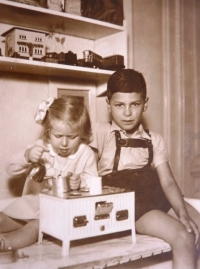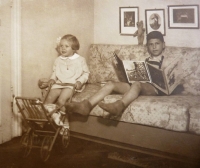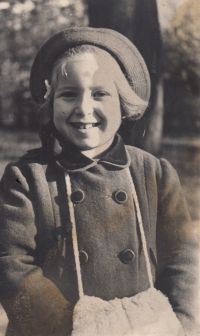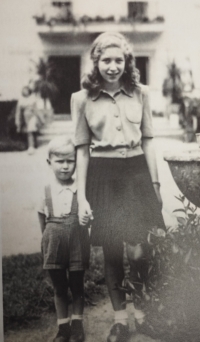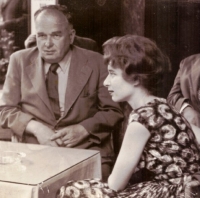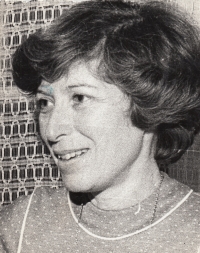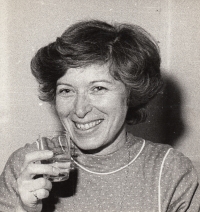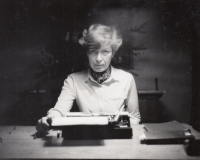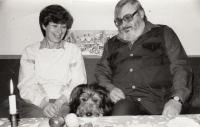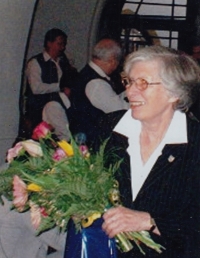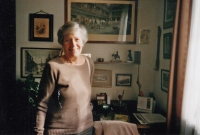It reminded me of my mother with a star...

Download image
Doc. PhDr. Lucy Topoľská, née Hrbková, was born on 31 December 1933 in Olomouc into the family of Leo Hrbek and Rosl, née Aschkenes. She grew up in a German-speaking environment in a family where Judaism and Christianity were combined. Leo’s father worked as an attorney (often defending murderers-mothers as victims of social conditions), Rosl was an art dealer and later became a European-recognized and valued expert on Moravian ceramics and faience. The family suffered from the persecution of Jews during the Protectorate. It was mainly thanks to her father’s initiative that Lucy’s mother was spared from being transported in the Second World War. However, most of her relatives perished in the concentration camps. Her father was also briefly imprisoned in the Kounic dormitories in Brno during the Protectorate. Lucy grew up together with her older brother Georg, and in 1943 Tomas was born. She graduated from the Slavic Gymnasium in Olomouc and, despite problems with admission, began studying philology (German and Russian) at Palacký University. In 1956, together with her first husband, she went through a trial for disseminating the text of a student resolution. In the end, the unjust charge resulted in only a symbolic suspended sentence for the husband. Lucy Topoľská worked at the State Scientific Library in Olomouc, and from 1965-2009 she was a lecturer at the Department of German Studies at the Faculty of Arts of the University of Olomouc. She was engaged in translating leading authors of German, Austrian and Swiss literature and gave her name for publication purposes to her persecuted colleague (and later dean of the Faculty of Arts of UP) Ludvík Václavek. During the Velvet Revolution, she supported the students who led the occupation strike and became a member of the Civic Forum Board at the Department of German Studies, which she then headed in 1990-1994. In 2002 she was awarded the Olomouc City Prize and in the first year of the new millennium she received the Ludvík Kundera Institute and the German Robert Bosch Foundation in Berlin for her translation skills and intercultural achievements. In 2023, when her memoirs were recorded for the Memory of the Nation, she was living in Olomouc.
